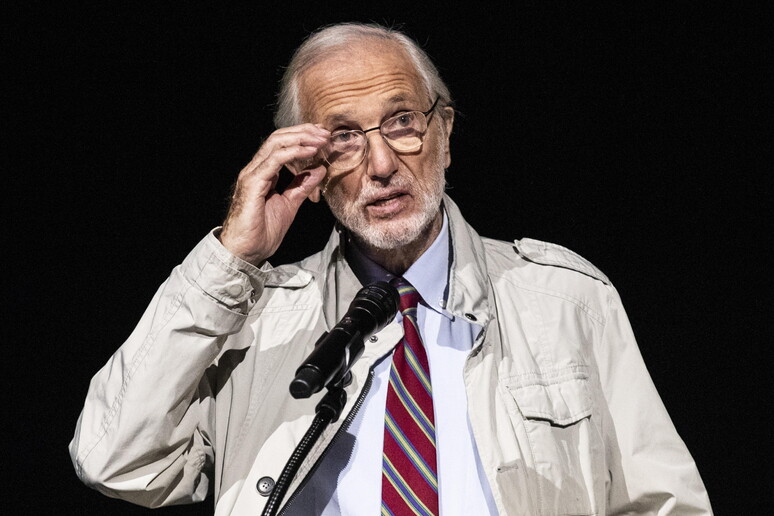Starchitect Renzo Piano on Thursday
appealed to keep Rome's cinemas from closing saying amid an
emergency that they created a vital space for the community.
Talking to la Repubblica daily, the 87-year-old Pompidou Centre
and Shard creator said:
"Dear editor-in-chief, this is my heartfelt appeal so that
cinemas, these precious 'places for the people', are preserved
in the urban fabric of our cities, and in particular those of
Rome.
"I think that the long dispute over the protection of the
intended use of Roman and Parisian movie theaters is the point
of a possible urban redemption.
"Those spaces, whether active or abandoned, represent the last
lungs of oxygen for our cities, increasingly saturated with
cars, shopping centers, hotels and vacation homes.
"The opening to the reconversion of those areas will become the
tombstone of our metropolises in a few years, damaging
everything, including retail trade.
"If the cinemas can be converted, after a few years of closure,
into places exclusively aimed at profit, the value of those
properties will rise, and the decline of essential places of
culture, such as movie theaters, will be inevitable.
"This will lead the owners of the walls to prefer the
termination of contracts with the managers of cultural
activities and the closure of those structures for years, in
order to wait for greater earnings thanks to the reconversion".
Piano also provides figures: in Paris, an average rent for a
movie theater of 5,000 euros a month for 15 years yields about
900,000 euros, while the same space, converted, can reach a
value of over 10 million.
"I believe the same calculation also applies to Rome." Taking
the example of the Roman forums, which "not even the barbarians
once they entered Rome dared" to convert into something else,
"today, as in the past, it is essential to recognize the
importance of our cultural spaces, in Rome as in all the
capitals of Europe. We cannot let go of all those places within
which the community is created, strengthened and at the same
time brings outside itself the space that becomes a city.
"The mistake that politics is often making, unfortunately, is to
see these structures only as cinemas, forgetting that their
intended use is broader (theaters, cinemas, concert halls,
theatrical performances and the like) and that they could be
transformed into what, here in France, are called tiers-lieux
(third places)".
The architect cited the experience of the Piccolo America,
created illegally out of a social need, to save the old Cinema
America from reconversion: "Today the Cinema Troisi with its
free and open study room is an urban emergency room: it is
urbanity, it is the civic value of the city".
Since the administration proposed the rule that opened this
dispute, Piano has learned that "various real estate agencies
are reporting that the value of the skeletons of the former
cinemas has doubled or even tripled."
ALL RIGHTS RESERVED © Copyright ANSA











